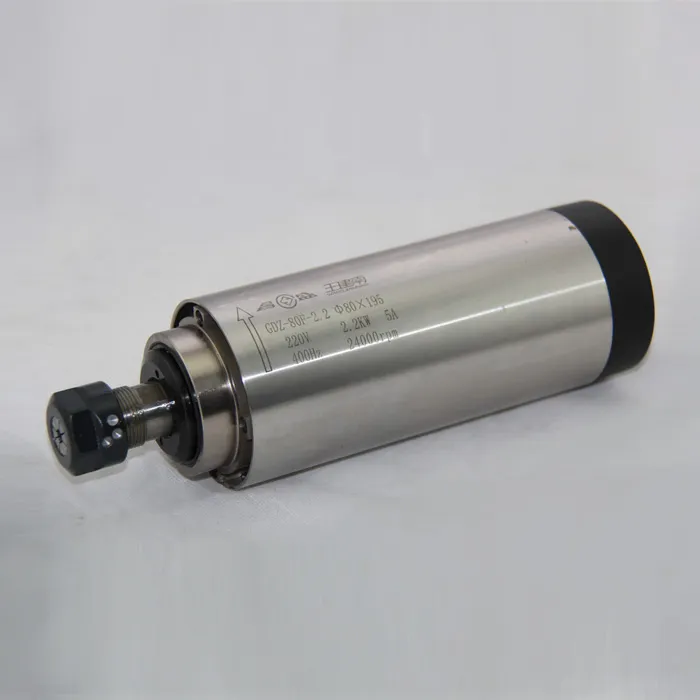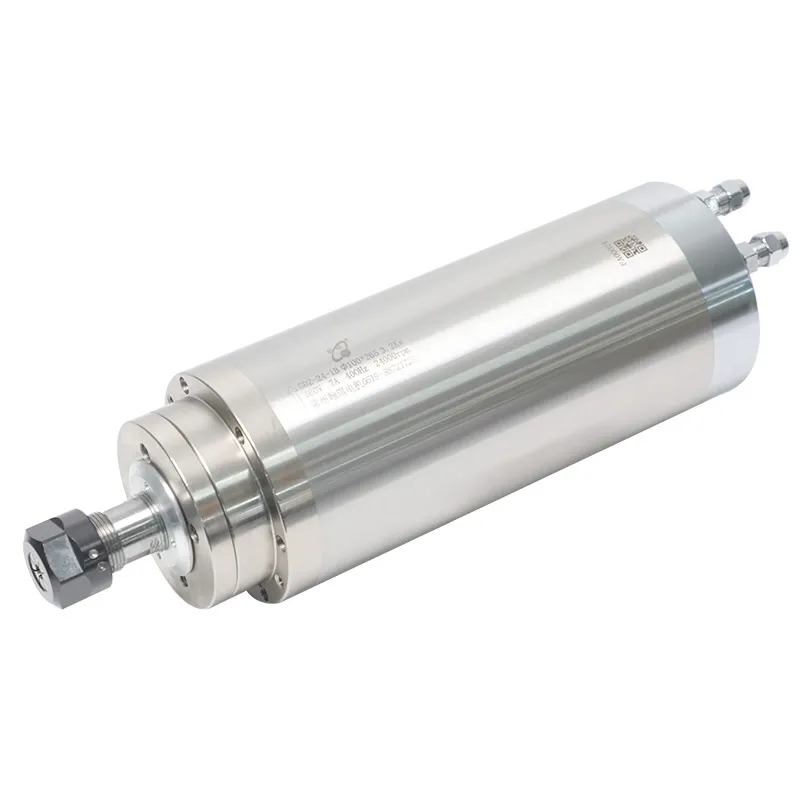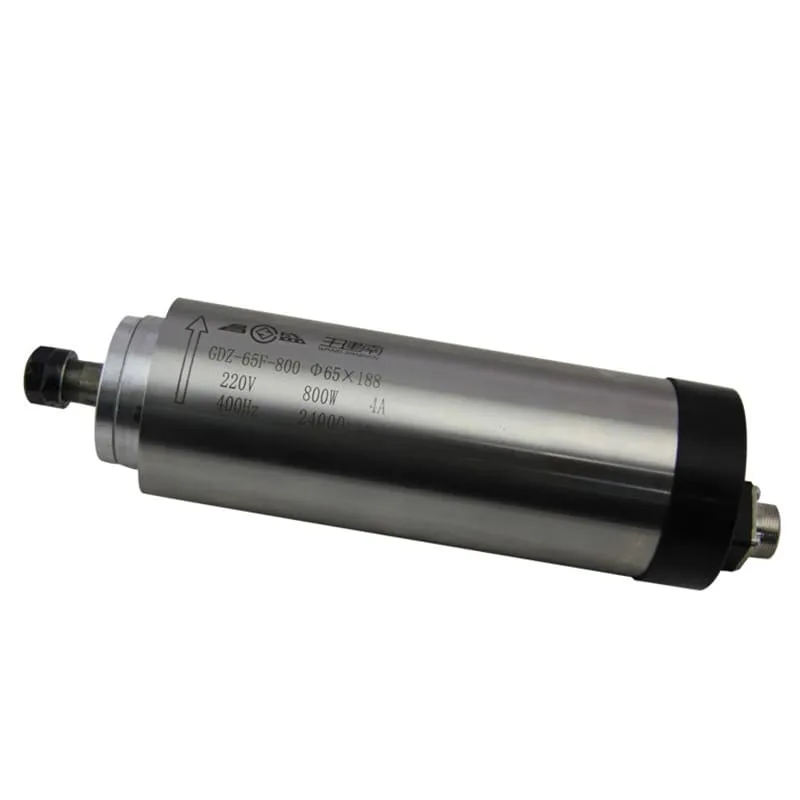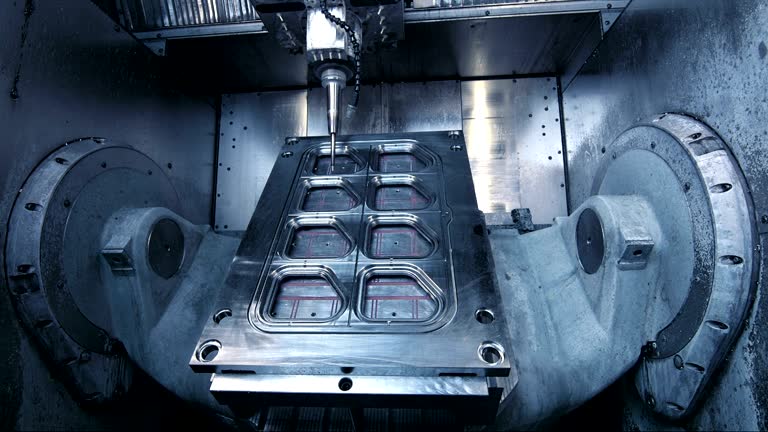The role of a CNC Operator is fundamental to modern manufacturing. As industries lean more heavily on automation, CNC operators have become an indispensable part of the production process, transforming raw materials into precision components with computer-guided machines. But what is a CNC operator, and what does the job entail? In this comprehensive guide, we will delve into the role, responsibilities, and career opportunities associated with being a CNC operator.
If you are considering a career in manufacturing or just want to understand more about CNC machinery, this guide is for you.
What is a CNC Operator?
A CNC (Computer Numerical Control) Operator is someone who runs CNC machines that are used to cut, drill, or shape metal, plastic, and other materials into precision parts. CNC machines are widely used in manufacturing for a variety of applications, from aerospace to automotive components.
Key Responsibilities of a CNC Operator
The main responsibilities of a CNC operator revolve around ensuring that the CNC machine performs its tasks correctly, safely, and efficiently. Here are some of the primary duties involved:
- Setting up Machines: Before any operation begins, CNC operators prepare the machine by setting up the correct tools and calibrating the equipment.
- Programming Input: While some CNC operators may simply load existing programs, others might need to make small changes to G-code or other programming languages that CNC machines understand.
- Quality Control: CNC operators are responsible for ensuring the quality of the finished product, including making minor adjustments to the machine if a part does not meet required specifications.
- Maintenance: Keeping CNC machines in top shape involves routine maintenance, checking for wear and tear, and performing minor repairs as needed.
These responsibilities require a blend of technical skills, attention to detail, and the ability to troubleshoot machine issues that may arise during production.
Skills Needed to Become a CNC Operator
To succeed as a CNC operator, certain skills are essential:
1. Technical Understanding
A solid understanding of how CNC machines work is the foundation of this job. Operators need to understand CAD/CAM software, the type of materials used, and the specific properties of each.
2. Attention to Detail
A single mistake during programming or machine setup can ruin an entire production run. Therefore, attention to detail is vital for ensuring quality output and minimizing waste.
3. Problem-Solving Skills
Machines don’t always work as intended. When a CNC machine stops functioning correctly or a part is not within the desired tolerance, the CNC operator must diagnose the problem and implement a fix.
4. Basic Mathematics
Basic math skills are essential in determining the dimensions of parts, understanding geometric tolerances, and calculating feeds and speeds. Operators use trigonometry to ensure that cuts are made at the correct angles.
5. Physical Fitness
CNC operators need to be physically fit. While the work isn’t as labor-intensive as some other manufacturing jobs, it still requires standing for long periods, moving materials, and sometimes lifting heavy pieces of stock.
Types of CNC Machines Operated
CNC operators may work with a wide variety of machines, each tailored to a different kind of production task. Below are the most common types of CNC machinery:
1. CNC Milling Machines
Milling machines use rotating cutting tools to remove material from a stationary workpiece. They are versatile and commonly used in automotive, aerospace, and precision engineering applications.
2. CNC Lathes
A lathe is used for cutting cylindrical parts, making it ideal for creating pieces like shafts, bolts, and gears. CNC lathes spin the workpiece while a stationary cutting tool makes precise incisions.
3. CNC Plasma Cutters
These machines use a plasma torch to cut through materials like stainless steel, aluminum, and brass. Plasma cutting is fast and efficient, making it ideal for large sheet metal jobs.
4. CNC Router Machines
Routers are commonly used for softer materials such as wood, plastic, and foam, often producing detailed and artistic designs, especially in furniture or cabinet making.
For more details on various spindles compatible with CNC routers, check out our 2.2KW ER20 Air-Cooled Spindle.

CNC Operator vs. CNC Machinist
Often, the terms CNC operator and CNC machinist are used interchangeably. However, there are key differences between these two roles.
- CNC Operator: The primary task of a CNC operator is to run the machine. This includes setting it up, running parts, inspecting parts, and making minor adjustments.
- CNC Machinist: A machinist has more advanced skills. Machinists often create programs, perform detailed quality checks, and even modify designs. Machinists are more focused on developing new production methods, whereas operators are focused on keeping the process running smoothly.
Job Opportunities and Career Paths
Entry-Level Opportunities
Most entry-level CNC operator jobs require a high school diploma, and some require completing a certificate program. These programs typically last for a few months and cover the basics of machine operations, G-code, and safety procedures.
A CNC operator can start their career at a variety of places:
- Machine Shops: Most CNC operators start their careers working in local machine shops, producing parts for various industries.
- Manufacturing Plants: Industries like automotive and aerospace rely heavily on CNC operations.
- Job Shops: These shops are subcontracted to complete specific tasks for larger companies, offering variety and the opportunity to work with different projects.
Advanced Career Paths
- CNC Programmer: With experience, CNC operators can move into programming roles, where they write the G-code that tells CNC machines how to operate.
- CNC Machinist: A role that requires more advanced skills, including the ability to troubleshoot and create CNC programs.
- Production Supervisor: Moving up to supervisory roles, CNC operators can manage entire production lines, overseeing other operators and ensuring efficient workflows.
For those interested in advancing their CNC skills, having access to advanced spindles can make a big difference. The 24000RPM 3.2KW ER20 Water-Cooled Spindle is one such high-performance spindle designed for continuous operations.

Typical CNC Operator Job Description
A typical CNC operator job description includes the following responsibilities and requirements:
- Set up and operate CNC machines, ensuring all materials and tools are ready.
- Monitor machine performance during production, adjusting feeds and speeds if necessary.
- Inspect finished products for accuracy, using calipers, micrometers, and other precision measuring tools.
- Perform routine maintenance on CNC machines to maintain high performance and safety standards.
- Document activities, including machine logs, quality control reports, and maintenance schedules.
Qualifications
- Education: High school diploma or equivalent.
- Experience: Familiarity with CNC operations or formal training from a technical school.
- Skills: Basic math skills, mechanical aptitude, and attention to detail.
Advantages of a Career as a CNC Operator
Choosing to work as a CNC operator has several benefits:
- Job Security: CNC operators are in high demand due to the increase in automated manufacturing. Modern industries rely heavily on CNC technology, which ensures job stability.
- Skill Development: This role allows individuals to develop valuable skills in precision manufacturing and machine operations, which can pave the way for advancement.
- Competitive Salary: Many CNC operators earn competitive wages, with opportunities for overtime and advancement that can significantly increase earning potential.
Work-Life Balance
The typical work hours for CNC operators provide a good balance between work and personal life. While some manufacturing facilities run 24/7, operators often work 8-hour shifts, with occasional opportunities for overtime.
Career Growth
A career in CNC operations also offers ample opportunity for growth. With additional training, a CNC operator can become a CNC programmer, machinist, or even move into supervisory roles. There is also potential to work with more complex equipment such as multi-axis CNC machines or robotic CNC arms, which are used in high-precision environments like aerospace or medical device manufacturing.
Frequently Asked Questions
1. What qualifications do you need to become a CNC operator?
You generally need a high school diploma and some basic technical training, either through vocational school or on-the-job training.
2. How much does a CNC operator earn?
The average salary for a CNC operator ranges from $30,000 to $45,000 annually, with opportunities for overtime pay.
3. What is the difference between a CNC operator and a CNC machinist?
A CNC operator runs the machines, while a CNC machinist has more advanced skills, including programming and troubleshooting.
4. Is CNC operation a good career?
Yes, CNC operation is a solid career choice for those interested in manufacturing, with good earning potential and room for advancement.
5. What industries hire CNC operators?
Industries such as automotive, aerospace, construction, and furniture manufacturing hire CNC operators.
Conclusion
A career as a CNC operator offers great opportunities for growth and stability in today’s manufacturing industry. By mastering machine operations, programming, and quality control, CNC operators play a vital role in the production process. Whether you’re just getting started or looking to advance to more specialized roles, CNC operation can provide you with the skills and job security you desire.
If you’re considering enhancing your setup with a high-quality spindle, be sure to explore options like the 24000RPM 800W ER11 Water-Cooled Spindle, which is ideal for precision and high-speed operations.

The right skills, tools, and attitude can help make your journey as a CNC operator both fulfilling and rewarding.

